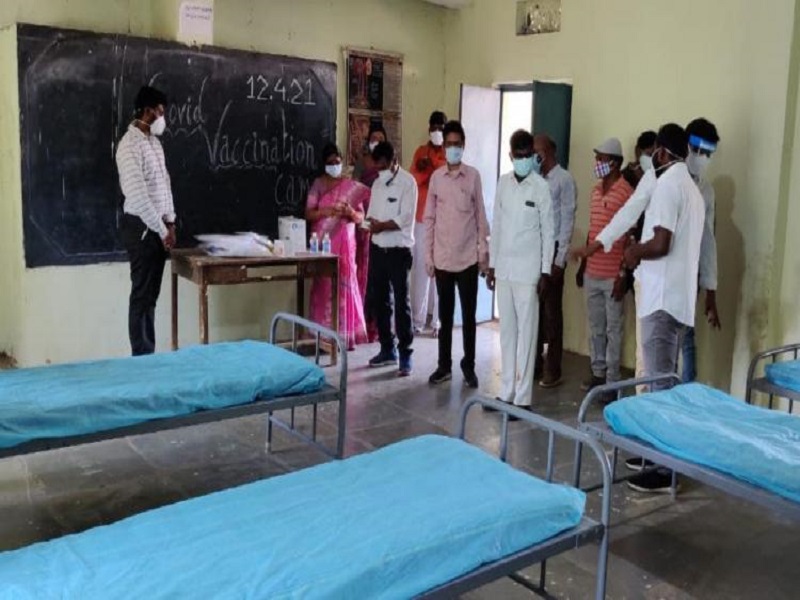The raging second wave of coronavirus infections in India has penetrated rural parts of the country as well, exposing the lack of healthcare facilities in these parts. Recently in Telangana, an 18-year-old was forced to take shelter in a tree when he contracted the coronavirus, as there was no government isolation facility in the village. Isolation is a crucial measure in preventing the spread of the virus to other family members. However, particularly in Dalit households in villages, the infrastructure required for proper isolation is a luxury. Their only other option is government isolation centres, but these are located in the mandal headquarters, which people avoid going to because of distance and the fear of not having their loved ones around them.
Acknowledging this, anti-caste activists led by Professor Sujatha Surepally, convenor of Bahujana Prathighatana Vedika, who have taken up COVID-19 relief work in Telangana are working to establish isolation centres at village level. However, setting up the centres in villages, where caste structures are extremely strong, is nearly impossible, they say. The activists allege that in some cases, Dalit communities are prohibited from accessing isolation centres in villages, while in other places, the dominant-caste village leaders avoid establishing common isolation centres for use by all communities, citing flimsy excuses.
As per the latest decision by the Telangana government announced on May 23, any village with more than 10 COVID-19 patients should have an isolation centre. With schools not functioning owing to the lockdown, they are to be converted into isolation centres. "In Jukkal, a village had set up an isolation centre, however people from the Dalit community were not allowed to take shelter there. They were asked to either set up makeshift tents in their farms and observe isolation or go to their relatives' place. Only the dominant community, who are Patels, could access the isolation facility," says Vishnu* (name changed), a volunteer for COVID-19 relief work from Kamareddy district. The village, which borders Maharashtra, is dominated by the Patel community, he says.
TNM reached out to the victims of this discrimination; however, fearing backlash and social boycott from the rest of the village, they did not consent to having their story published.
Srinivas, another volunteer from Vemulawada in Telangana alleges, "The village leaders are against the idea of an isolation centre because it is a common place where people share the same space and share the common food." Sharing his experience, he says, "In my village, Marupaka, with the number of COVID-19 cases increasing, I had reached out to the village Sarpanch and proposed the idea to establish an isolation centre. He was reluctant, but was convinced. But later, after holding a discussion with other villagers, he said that the village will observe a self-lockdown, effectively ditching the need to have an isolation centre. The decision was obviously taken to please the upper caste community who do not like to share the same space with Dalits.
Persisting with the demand, Srinivas was able to establish an isolation centre earlier this week. However, officials deny about any such caste discrimination at play.
Marupaka isolation facility, where the patients are also provided with essentials by the volunteers
Dr Chandrasekhar, District Medical Health Officer of Kamareddy, says that he has not come across such complaints from the nine isolation centres in the district. Similarly, Sujatha, Auxiliary Nurse Midwife from Marupaka says, "There is no such discrimination. Everyone is living in harmony without any disturbance."
Professor Sujatha Surepally, who is coordinating COVID-19 relief efforts, particularly for marginalised communities says, "Caste discrimination existing is a reality, but at many places it is operating in a sophisticated manner, and it is hard to point that caste is a factor to shun the idea of an isolation centre."
A possible solution for Dalits who test positive for the coronavirus, Sujatha says, is building community halls for those from Scheduled Caste communities only. "Dalits do not have a big enough house or have two toilets to observe home isolation. So I am of the opinion that whichever village has a good number of people from the Dalit community, the government should construct a community hall for them which could be used for several purposes."
Source: The News Minute
0 COMMENTS



